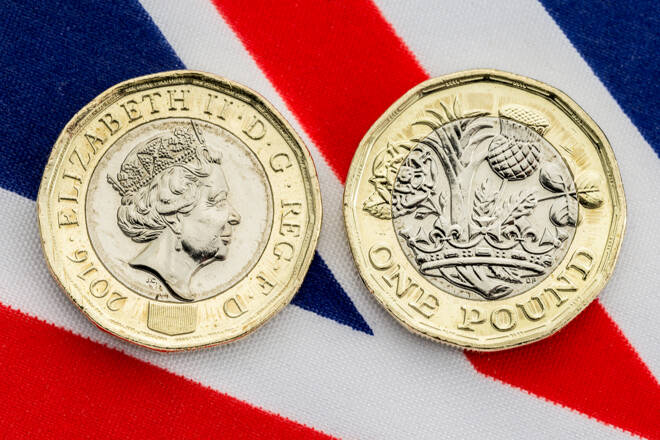Advertisement
Advertisement
GBP to USD Forecast: Pound’s Response to US Economic Indicators Looms Large
By:
The Sterling's fate hinges on both the Bank of England's stance and emerging US economic indicators.
Highlights
- On Wednesday, GBP to USD witnessed a minor gain of 0.02%, recovering from Tuesday’s 0.17% decline.
- Incoming Deputy Governor Sarah Breeden warns of lingering inflation risks, balancing growth concerns.
- US retail sales, producer prices, and jobless claims set to steer market sentiment today.
Overview of the Wednesday Session
On Wednesday, the GBP to USD pair gained 0.02%. Following a 0.17% loss on Tuesday, the GBP/USD ended the day at $1.24898. The GBP/USD pair fell to a low of $1.24331 before rising to a high of $1.25117.
Bank of England Remains the Focal Point
A weaker-than-expected UK monthly GDP estimate failed to shut the door on further BoE interest rate hikes. While labor market conditions softened in August, wage growth accelerated, suggesting a pickup in consumption to fuel demand-driven inflation.
Incoming Deputy Governor of the Bank of England, Sarah Breeden, recently stated that upward risks to inflation lingered. Breeden also said she saw risks to growth and unemployment balanced.
The UK economy faces a potential recession, but hawkish comments have supported GBP. Investors will likely focus on BoE commentary due to the absence of UK economic indicators affecting monetary policy sentiment.
US Economic Calendar to Take the Limelight
While bets on further Fed rate hikes have eased, economic indicators could reignite bets on a final Fed rate hike. Later today, US retail sales, producer prices, and jobless claims will draw investor interest.
Economists forecast producer prices to increase by 0.4% in August versus 0.3% in July. However, economists expect retail sales to rise by a modest 0.2% and initial jobless claims to increase from 216k to 225k.
Rising producer prices, increased retail sales, and stable labor conditions might indicate a September shift. A tight labor market boosts wage growth, spurring consumption and demand-led inflation. Producer prices, as precursors to consumer prices, suggest growing inflationary pressures from demand.
Short-Term Forecast
The GBP/USD pair will likely remain under pressure over the near term. However, weakening US economic indicators could fuel fears of a US hard landing and give the Pound the upper hand.
GBP to USD Price Action
Daily Chart
The GBP/USD pair stayed below the trend line and the 50-day and the 200-day EMAs, sending bearish price signals. Better-than-expected US economic indicators would support a GBP/USD break below the $1.24410 support level. However, BoE commentary will likely have more influence.
Hawkish BoE comments would support a GBP/USD move toward the 50-day EMA and $1.26815 resistance level.
The 14-period daily RSI reading of 37.63 shows the GBP/USD pair can fall to $1.2450 before entering oversold territory.
4-Hourly Chart
The GBP/USD remains below the 50-day and 200-day EMAs, reaffirming bearish price near-term signals. Better-than-expected US economic indicators would bring the $1.2441 support level into play. However, a GBP/USD break above the 50-day EMA would give the bulls a run at $1.2550.
With a 47.53 reading on the 14-period 4-hourly RSI, the GBP/USD could fall to $1.2450 before entering oversold territory.
About the Author
Bob Masonauthor
With over 28 years of experience in the financial industry, Bob has worked with various global rating agencies and multinational banks. Currently he is covering currencies, commodities, alternative asset classes and global equities, focusing mostly on European and Asian markets.
Advertisement
